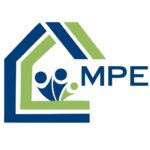My 7 yo son currently attends public school and has a 504 for his anxiety. He also has complex developmental trauma. He currently sees the school social worker twice weekly but due to the lack of utilizing trauma informed practices, his anxiety about his teacher is impacting him greatly. We would like to remove him for at least the remainder of the year to allow him a greater sense of felt safety and restore his love of learning but the principal has informed us that they will no longer allow him to see the school social worker. I am wondering if there are any requirements for the district for students that receive 504 services and are homeschooled.
From the MPE email inbox
A 504 plan is a formal school plan to give support to children with disabilities. Unlike an Individualized Education Program or IEP, a 504 plan doesn’t have to be a written document.
While there is no standard for 504 plans, they generally include specific accommodations, supports, or services provided (as well as the names of service providers and plan implementors).

This excerpt from an Understood article explains more differences between IEPs and 504 plans:
The purpose of IEPs is to provide a free and appropriate education. So an IEP may include a range of supports and services to meet a child’s learning needs. The child might get special reading instruction and occupational therapy, for instance. He might also get accommodations such as extended time on tests and assistive technology.
The purpose of 504 plans is to provide access to general education. For that reason, 504 plans typically provide accommodations. Sometimes a 504 plan might also include related services like speech-language therapy. But 504 plans typically don’t include specialized instruction.
https://www.understood.org/en/articles/the-school-wants-to-move-my-child-from-an-iep-to-a-504-plan-how-will-that-affect-my-child
(For more information about 504 plans, check out this excellent article by Understood.org.)
If your situation is similar to the comment we received above, these 3 important tips can help you in making your decision:
1. Know the difference between “homeschool” and virtual/charter schooling at home.
The state of Kansas does not technically recognize homeschooling as a unique form of education. Homeschool families operate as non-accredited private schools. This is what we consider to be “homeschool” in the truest sense in that it is free from, and independent of, government regulations and restrictions.

A second option is to operate as a satellite of (and accountable to) a private school. We commonly call these virtual or charter schools. While your child is still enrolled in the public school system, they receive school materials to do their schoolwork and attend classes online from their home.
If your child is enrolled in this option, then you remain subject to all the regulations of the school, including attendance, standardized tests, etc.
Since COVID-19, interest in this form of schooling has increased. (See this excellent guest post by Terri Gake about her experience with virtual school.)
One important difference between the two options involves funding.
If you choose to withdraw your child and operate as a non-accredited private school, the school district will receive no federal funding as a result. However, if you choose the virtual/charter school route, the school district will continue to receive federal funding.
Therefore, it is always in the financial interests of your school district to have you choose the second option instead of the first.
2. Understand the legal requirements of your local school district.
Homeschoolers typically do not qualify for public school services to children with special needs because of funding-related issues.
The law does not require public-school districts to let outside students participate in their special needs services.

The onset of COVID-19 only accelerated this trend, as many families decided to withdraw their children from public schools (which affected funding).
If you decide to withdraw your child completely from the public school system, it is important to officially withdraw your child from their current school. (We have free school withdrawal letter templates here.)
We also highly recommend joining the Home School Legal Defense Association (HSLDA). They can also advise you on many legal aspects of homeschooling a child with special needs. (And when you join MPE, you can get a discount off your annual HSLDA membership!)
3. Establish your support network and access to local resources.
An increasing number of families with special needs are turning to homeschool as the best educational choice for their children.
The HSLDA website has a whole section devoted to special-needs homeschooling, from personalized consultations to recordkeeping, creating your own student education plan, and more.
In addition, you can find a wealth of local options and support networks for homeschool families. We’ve listed a few of these below:
- 14 special needs homeschool resources in the KC area
- 8 dyslexia resources recommended by homeschoolers
We have updated this blog post, originally published in 2019, for timeliness and detail.
Do you have questions that weren’t answered by this blog post? Feel free to contact us for more information.




